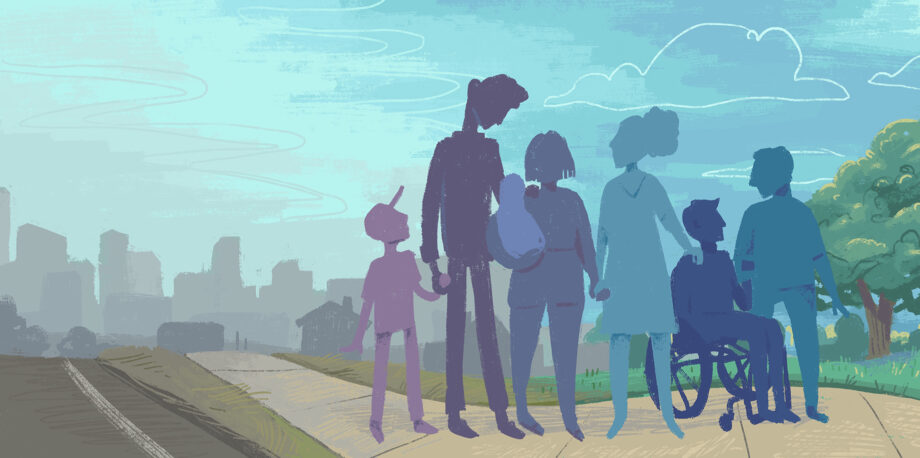May 26, 2020 — Many environmentalists had dubbed 2020 a “Super Year for Nature.” An unusually high number of environment-focused conferences were scheduled for this year. The International Union for Conservation of Nature was hosting the World Conservation Congress. The United Nations had planned a global Oceans Conference, a crucial November conference on the Convention on Biological Diversity, and its annual climate change talks. These were just four of many events where environmental activists expected to congregate, take stock and plan ways forward.
Not only that, but assertive pushback on the status quo by initiatives like the Sunrise Movement and Extinction Rebellion gave reason for optimism about the potential for a shift in sentiment and action by governments, businesses and philanthropists to move faster and deeper on climate and other environmental issues.
At the same time, activists working on human rights — of indigenous peoples, of workers throughout supply chains, of environmental defenders, of communities that could lose out in energy transitions — had strengthened their voices and networks, honing arguments for why a focus on people must be intertwined with a focus on planet. The 2019 Peoples’ Summit on Climate, Rights and Human Survival stands as a milestone in this effort to bring together the environmental and human rights communities to create a unified framework for tackling injustice and threats to people and planet.
With COVID-19 leading much of the world to shelter in place, event planning and movement building on environmental and social issues have shifted dramatically. Can we maintain the momentum for change and draw from tragedy a new and valuable trajectory for the future?
New Awareness
Many philanthropic funders, along with civil society and enlightened business leaders, are finding that this moment is drawing attention to the underlying structural problems that plague our world. In doing so, leaders and those holding them to account have an opportunity to move forward very differently — bouncing beyond, as some call it, rather than aiming to reset public and business priorities to the pre-pandemic status quo.
The COVID-19 crisis is bringing into sharp focus the growing pressure on the planet from a growing human population packed into cities and settlements, as well as encroaching on undisturbed areas in ways that increase the risk of zoonotic disease. Consumers and patients newly aware of the distress of individuals in precarious labor situations in their own communities are suddenly sensitized not only to the low-paid workers in elderly care homes, but also to the miners who source the coltan for our phones, the sugar cane farmers whose hard labor brings the sweetness to our foods, and the women in factories who stitch the clothes we wear. And urban residents seeing clear skies for the first time are open in a new way to imagining a healthier future for our societies and the planet.
To be sure, addressing these issues is not more important than the need to fundamentally shore up public health systems around the world. Nevertheless, the co-benefits of resetting public policies and business practices with respect to environmental and social goals have never been more obvious. This is a time to shift mental models — our values, beliefs and attitudes about what is right and wrong.
Nature and People
Many philanthropic funders have adopted a systemic approach to their giving — addressing root causes rather than symptoms, providing long-term support for causes they care about, and understanding the importance of working across sectors and in collaboration with others. Many are working proactively to both be sensitive to the tragedy of our current situation and use their funding to avoid the world going back to business as usual. They are finding that 2020 can be a super year, not just for nature, but also for people.
2020 can be a Super Year, not just for nature, but also for people.The coalitions they support include the Planetary Emergency Partnership, a group of leaders from governments, the U.N., civil society, academia, philanthropy and business focused on addressing the convergence of human health and well-being, the climate crisis and biodiversity loss by promoting sustainable food systems and a more local, circular and low-carbon economy. A second is the Global Commons Alliance, which is translating scientific understanding of the need to protect nature into science-based targets for humanity that define the actual boundaries we must respect in terms of climate, biodiversity, marine and freshwater resources, and land. Based on the thinking of Nobel Prize–winning economist Elinor Ostrom, defining boundaries and adopting targets that transform norms and behavior is the pathway for individuals and groups — starting with businesses and cities and expanding to national governments — to protect these global commons.
Funders, consumers and voters must all help such collaborations succeed. Funders can focus grants and donations to support networks that weave together the needs of people and planet. Consumers can look more closely at the goods and services we purchase to ensure that sustainability and equity are a part of each company’s commitments. And voters can research candidates’ positions on how “green” and equitable pandemic recovery and stimulus packages should be.
In these and other ways, we can make 2020 not just a year of tragedy, but also the beginning of a new era of helping people and planet to become more just and resilient.
Editor’s note: The views expressed here are those of the author and not necessarily of Ensia. We present them to further discussion around important topics. We encourage you to respond with a comment below, following our commenting guidelines, which can be found on this page. In addition, you might consider submitting a Voices piece of your own. See Ensia’s Contact page for submission guidelines.
Related Posts
Ensia shares solutions-focused stories free of charge through our online magazine and partner media. That means audiences around the world have ready access to stories that can — and do — help them shape a better future. If you value our work, please show your support today.
Yes, I'll support Ensia!




